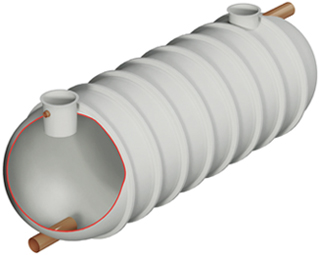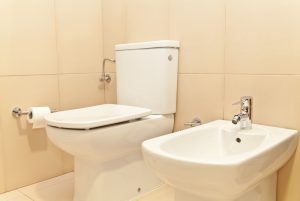Being careless with water usage in your home can cost you a considerable amount of money each year, as well as being wasteful. With UK households wasting up to a third of the water they use on a daily basis, this amounts to huge volumes of water wasted nationally. Water usage has been rising, slowly but surely, since the 1930s and nowadays the average person in the UK uses 150 litres of water every day. Let’s take a look at some of the biggest water wastes in the home, and some ways you can become more water efficient.
Toilets
Toilets make up about 30% of a household’s water usage. Across all the homes in the UK, water usage from toilets stands at approximately 2 billion litres a day. This incredible figure is exacerbated by old, inefficient toilets which use a lot more water per flush than newer models. An old, single flush toilet can use 13 litres of water per flush whereas modern, water efficient toilets use around 6 litres for a full flush and 4 litres for a reduced flush.
If you want to make your existing toilet more water efficient, rather than fitting a new economical model, you can install a cistern displacement device. This works simply by sitting in the toilet cistern, displacing around 1-3 litres of water. This means you can use 1-3 litres less water with every flush.
Showers
Water used in the shower accounts for around 12% of household consumption. Whilst generally a shower will use less water than a bath, this is dependent upon time spent in the shower and your shower model; power showers can emit excessive water levels.
Swapping out your showerhead for an economical version is a great solution. Aerated showerheads reduce water flow without reducing pressure by adding air into the water. Alternatively, a specially designed low flow showerhead will allow you to have more water efficient showers – reducing consumption levels up to 50% – without having to cut down shower time.
Kitchen usage
Water going to your kitchen taps and dishwasher makes up 8-14% of a household’s water use. Although a lot of this is necessary usage, and you certainly shouldn’t limit the amount you drink, there are still ways in which you can improve efficiency.
With dishwashers, ensure you buy the appropriate size model for your household. For example, if you live alone, a compact dishwasher which holds around 6-8 place settings will likely suffice. Furthermore, only using your dishwasher for full loads and making use of any ‘eco’ settings will help ensure water is used as sparingly as possible.
When it comes to reducing water usage from your taps, the advice is simple: don’t leave the tap running. The flow volume of your kitchen tap can be anywhere from 2-25 litres per minute and so leaving it running can waste large volumes of water over time. A good idea is to use a washing up bowl instead of doing washing up under a running tap – this can reduce wastage by up to 50%.
Clothes washing
Washing clothes makes up approximately 15% of your home’s water usage. Although you may not usually give a second thought to the amount of water your washing machine consumes, these appliances can be surprisingly wasteful. Old models could use up to an incredible 150 litres in one cycle, and the average cycle’s water consumption these days is still at a huge 50 litres. New models can be a lot more water efficient – look for machines that use under 7.5 litres of water per kg – making replacing your old machine one of the best ways to reduce water wastage. Ensuring you always wash with a full load of laundry will also ensure you make the most of the water used.
Wildon UK is a drainage and wastewater specialist, operating across Stoke on Trent, Staffordshire and further afield throughout the UK. Our engineers have the experience and expertise to deal with a wide range of drainage and sewage treatment problems for domestic, commercial and agricultural clients. For help and advice regarding water efficiency, maintenance, repairs and many more wastewater issues, get in touch with Wildon UK.
Go back to









